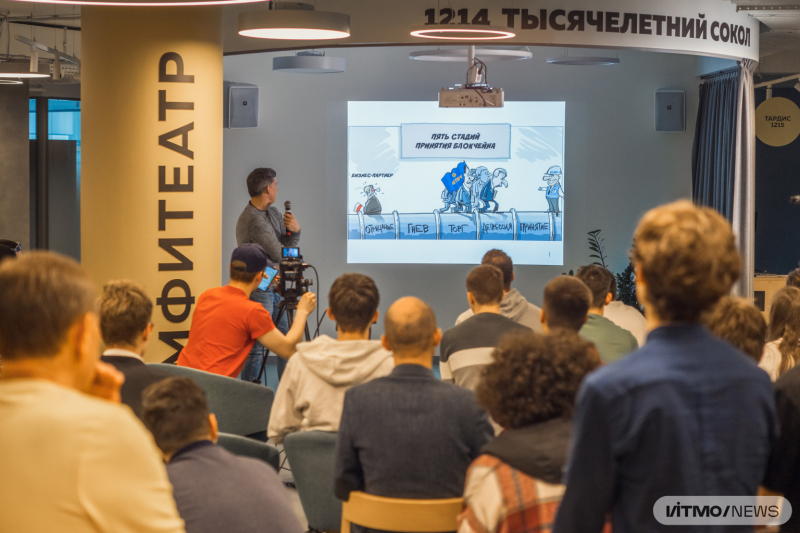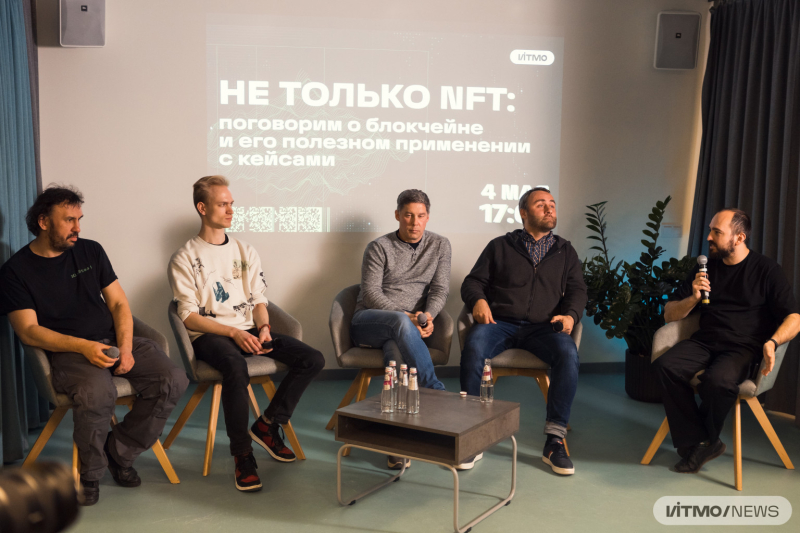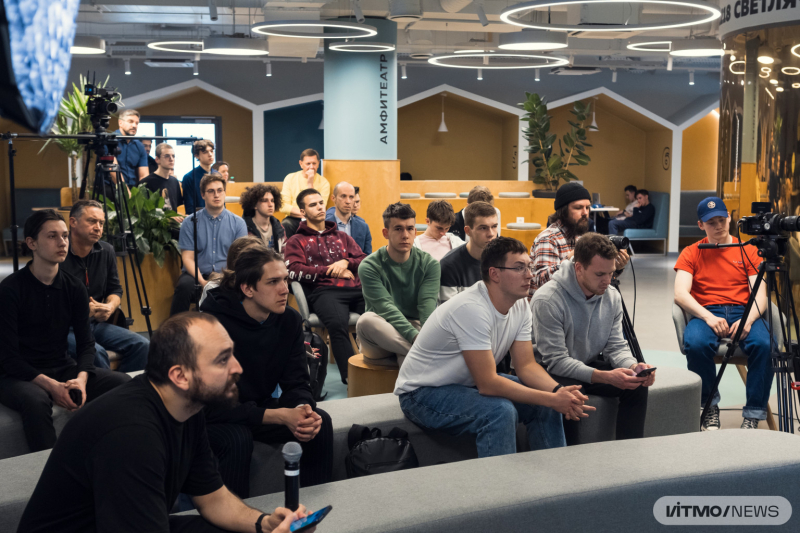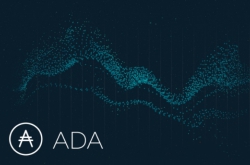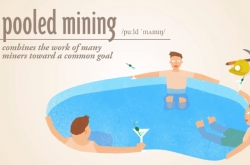What makes blockchain so popular
Blockchain, in essence, is a database that stores information about various transactions as sequences (chains) of digital “blocks.” Each one also contains information about the previous and the following blocks in the string. That way, every change can be easily tracked and verified.
“Blockchain’s main feature is that it can be verified by anyone. Each member of the network can track down every single operation that ever took place within that network. Another advantage of this technology is that it is remarkably easy to use. Using smart contracts, you can make and authenticate vesting deals (in which employees receive shares depending on how long they’ve worked for the company – Ed.) with as many parties as you wish. Moreover, these contracts require so little code that even a student could write one,” explained Sergei Prilutsky, the CFO at MixBytes.
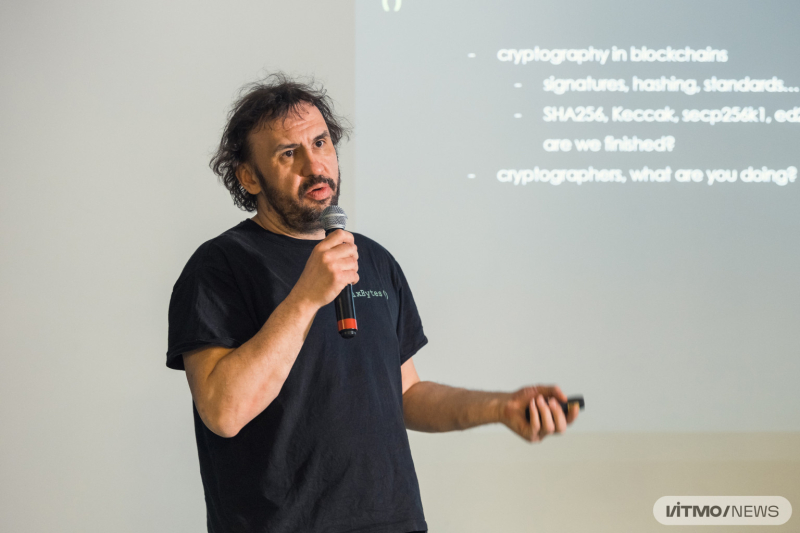
Sergey Prilutsky. Photo by Dmitry Grigoryev / ITMO.NEWS
Blockchain is considered impervious to forgery. This, along with how easy it is to use, has quickly made it popular in other fields besides cryptocurrency.
Blockchain in education
Keeping track of students’ extracurricular activities. As students take part in hackathons, conferences, and workshops outside of their universities, they receive diplomas and certificates that would make great additions to their portfolios – and may even come in handy when applying for jobs. But is there a way for universities to take such extracurricular activities into account as part of the learning process?
Alexandr Kapitonov, the dean of the Faculty of Infocommunication Technologies, found the solution in a novel, namely Eliezer Yudkowsky’s famous fan fiction Harry Potter and the Methods of Rationality. In the book, students receive points for completing various tasks that they can later spend to get a passing grade in a subject. In a similar manner, students of the Faculty of Infocommunication Technologies now earn tokens for winning extracurricular contests if the subjects of said contests are related to the course. These tokens can later be spent to complete an exam or a course assignment.
“If teachers were all to use a single spreadsheet to keep track of the students’ points, it would quickly lead to mistakes. But blockchain-based tokens are a lot easier to trace. If you were to spend one, using it again would simply be impossible,” said Alexandr Kapitonov. “This system has been in place for more than two years, and more than 50 students used to pass some of the more difficult subjects, such as Structures of Data, Web Development, Fundamentals of Machine Learning, and other programming- and algorithms- related subjects.”
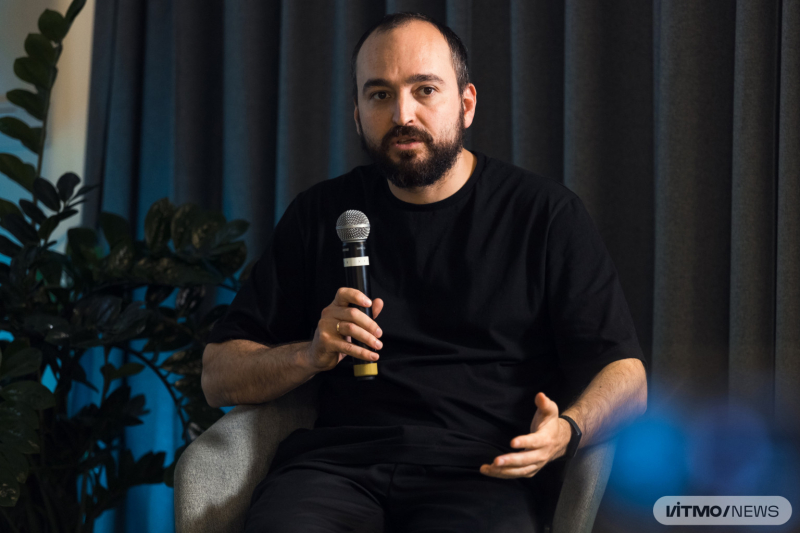
Alexandr Kapitonov. Photo by Dmitry Grigoryev / ITMO.NEWS
Remote polling. This is a task that is easily handled by the CryptoVeche (from veche – an ancient Slavic form of legislative assembly – Ed.) online voting system. According to Kirill Dorozhkin, an expert at St. Petersburg State University’s Distributed Ledger Technologies Center, CryptoVeche can conduct anonymous and other types of polls and tally the results. All of the results are stored in the blockchain, which guarantees their security while providing easy access to the results. CryptoVeche is already in use at several Russian universities, such as the St. Petersburg State University, the Far Eastern Federal University, and the Russian Institute of Theatre Arts, where it provides a way to safely conduct voting during academic councils and elections.
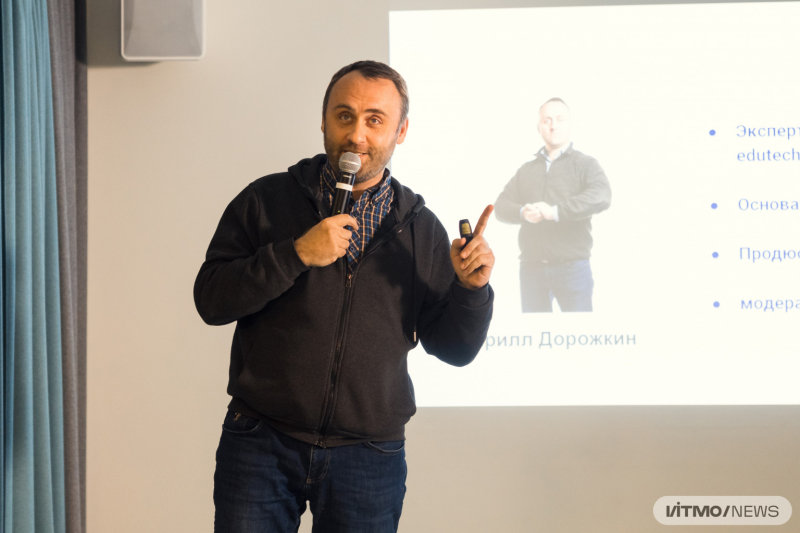
Kirill Dorozhkin. Photo by Dmitry Grigoryev / ITMO.NEWS
Making learning fun. Fittingly, blockchain technologies helped make the course on blockchain more engaging. For instance, over 40 students attending the course received tokens for completed assignments, as well as NFT certificates upon their completion of the course. According to Yaroslav Paroshin, a second-year Master’s student in computer systems and technologies and head of ITMO’s Bored Consortium crypto-oriented community, by offering students to use tokens, the course demonstrated that it isn’t such a complicated technology – in fact, anyone can make use of it. In this case, students could spend their tokens to interact with the community or pay for consultations with its members.
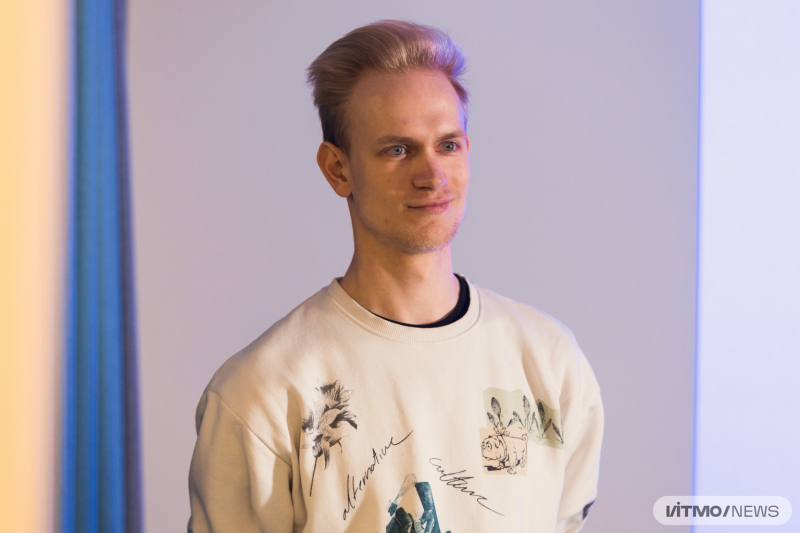
Yaroslav Paroshin. Photo by Dmitry Grigoryev / ITMO.NEWS
Blockchain in business
Managing materials life cycle. Raw materials, such as oil and gas, are extracted from the soil with drill strings, which are assembled from many drill pipes placed upon each other and going deep into the soil. The lower a pipe is located, the more pressure it is subjected to.
Once a well site is depleted, the pipes making up the drill string are disassembled and transported to a new site to be reassembled into a new drill string in a random order. According to Roman Tyulpanov, a first-year PhD student at the Faculty of Technological Management and Innovations, this process is the root of a serious problem: if the new drill string will start with a pipe that experienced the most pressure, it might quickly fall apart which would mean that oil extraction at the site will have to stop.
“We suggested solving this problem with a blockchain platform that will contribute to the quality of inspection of drilling equipment at well sites. Each pipe and key equipment elements are marked with identifiers, which contain information on the pressure they were subjected to and the number of times they were lifted. This information is recorded in a blockchain. Our system allows us to control the full lifecycle of each pipe and avoid instances where highly worn-out pipes end up at the start of a drillstring,” explained Roman Tyulpanov.
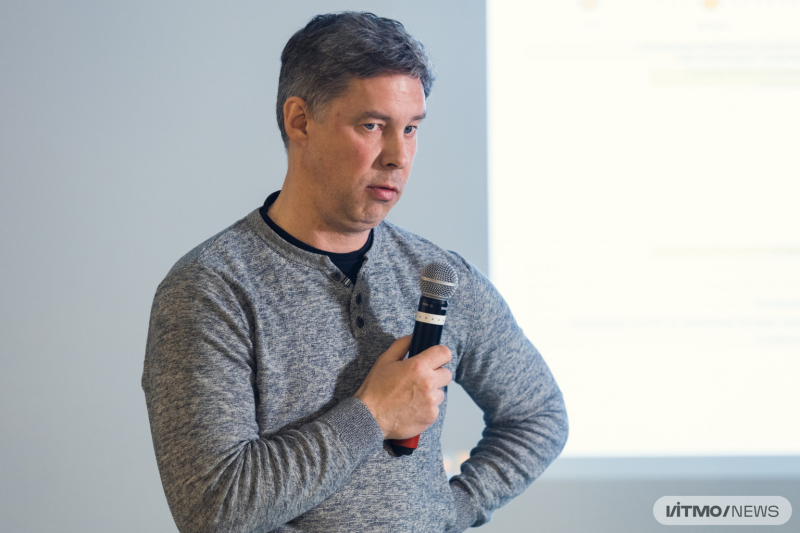
Roman Tyulpanov. Photo by Dmitry Grigoryev / ITMO.NEWS
Keeping track of museum exhibits. Edemes, a system for this purpose, was developed by the Distributed Ledger Technologies Centre of St. Petersburg State University. The solution tracks each step during the transportation of a museum exhibit thanks to special QR code-based tags used to seal their packages. These tags store information about each part of the journey, as well as temperature, humidity, and whether the exhibit should be handled with care. All this data is stored on the blockchain platform Hyperledger Fabric that guarantees their safety, according to Kirill Dorozhkin.
Protecting personal information. Let’s imagine you are an investor and you want to enter a special club for people like you, but they only admit members with over a million dollars in capital. How can you enter the club without parading your bank account? Sergei Prilutsky believes that it could be done with the zero-knowledge proof protocol. In this case, as an investor you will need to prove to a blockchain network that you have a million dollars – then, you will be issued a token that you can show to your fellow investors without fear that they discover something you are not ready to share.
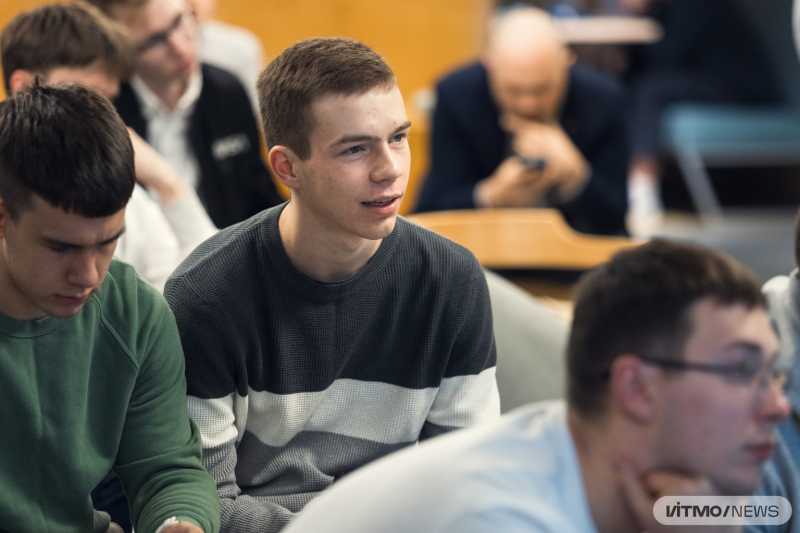
The Not Just NFTs meetup at ITMO. Photo by Dmitry Grigoryev / ITMO.NEWS
Earlier, ITMO hosted a meetup on machine learning and IT, with a focus on ChatGPT. There, Alexander Krainov, the director for development of artificial intelligence technologies at Yandex, Andrey Sebrant, a researcher and the director of marketing services at Yandex, and Alexandr Kapitonov discussed the future of associated technologies. At another event, ITMO students shared their experience of using AI in education, research, and business. You can watch the full recording of the event here (in Russian).
